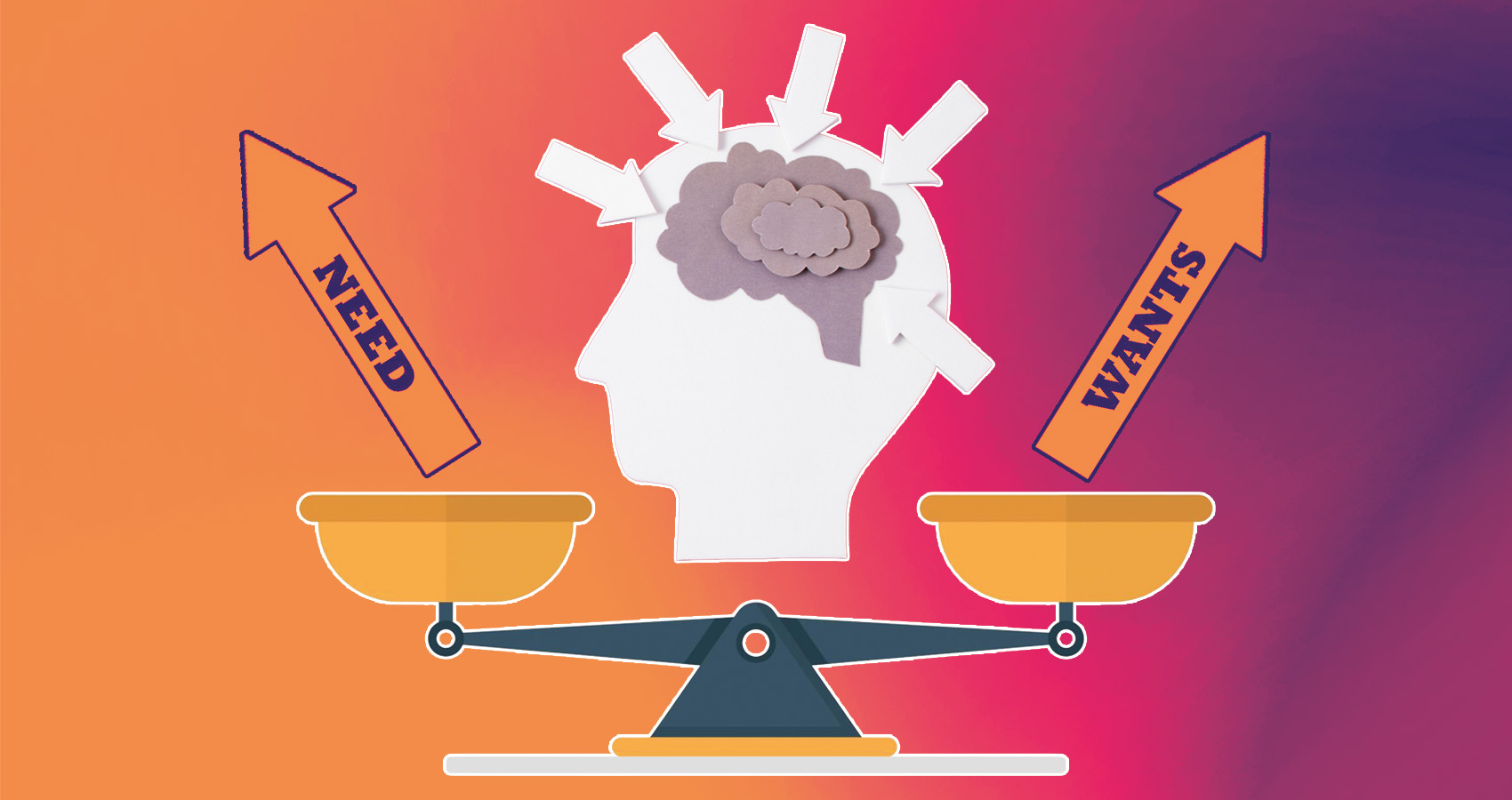
How to Find Harmony Between “Want” and “Need”?
Why knowing the difference can transform your life.
There’s a distinct line between wanting and needing something, but most of us rarely see it. In a world where the quality of life has improved and consumerism has become an integral part of our culture, some people still struggle to make ends meet. Many of us were taught that needs are valid and wants are selfish. Others were raised without even basic needs, and “wants” may still feel like luxuries even after hard work. On the flip side, some of us chase want after want and fall into procrastination, only to find ourselves feeling empty.
Both wants and needs are essential for a fulfilling life. We only need to learn what they mean and from what place they speak to us.
The Difference Between Want and Need
Let’s start with the definitions first. A need is something critical to your survival and well-being. These include:
- Physical needs: food, water, rest, safety, shelter.
- Emotional needs: connection, stability, love, validation.
- Psychological needs: a sense of meaning, autonomy, self-respect.
Although many of us haven’t yet achieved all of these needs, they are a given. Many personal stories from okmagazine.com reveal how people are learning to ensure their emotional and psychological needs.
A want is different. It is something that improves your life but isn’t necessary for survival. They are about self-expression and aspirations. They can take many forms as well, and each is unique to every person. For example, it may be the desire to be admired, to acquire a new clothing item, or to exercise creative freedom.
Is it that easy, though? A lot of times, these two concepts overlap, and we don’t even know it. For instance, you may want a quiet weekend alone, but it’s not a want — it’s your buried need for some security and calm. Or you may need love, but chase it through social media and likes.
Learning to Make Aligned Decisions 
You can honor both sides of you. The harmony means understanding yourself more than just reacting to small nudges from the world. Here are a few tools that can help you make decisions that benefit you.
Ask the Right Questions
When making choices, start by asking yourself about them. Here are some of the questions that can help you figure things out:
- “Will this nourish me in the long run?”
- “What need might be hiding behind this want?”
- “If I had no fear or pressure, what would I choose?”
These questions help you dig deeper than surface-level motivation.
Listen to Both
We tend to prioritize either wants or needs more, depending on our past experiences, habits, and culture. But both of these sides can bring insight to our lives, and we shouldn’t silence them. They try to protect us in their own way. When we seek balance, each has their contribution.
The need can ground you. The want can inspire you. When facing some major decisions or challenges, think about this:
- What must be in place so that you feel secure and fulfilled?
- What would make this situation joyful?
You may even know how to reconcile both. However, it will also show you the moments where one of them gets ahead and stifles the other. When you let each of them speak, you become more objective.
Choose the “Both/And” Thinking
Instead of framing choices as either/or (do what I want vs. do what I need), ask yourself how to combine them. You can have both things, even if it might feel impossible. Because you compromise with yourself first of all, it is you who can fix and make it right.
For example, you might want a luxurious item, but you’re struggling financially. Then, choose small items you can afford that will still indulge you. Alternatively, you might want to have some alone time while remaining close to those you love. In this case, boundaries and communication will do the trick.
Tools and Practices
You know the theory, but it’s just a start. The accessible tools and tricks below can be applied to most situations.
Mindful Budgeting
Budgeting shouldn’t be restrictive and dreadful. You can keep it effective and still fun, well, as much as budgeting can be fun. Make two lists: one of things you need to function well, and another of things you want to feel fulfilled. Now, map out your week. Are you allocating time or money to support both lists, or are your wants taking precedence over your needs (or vice versa)?
Important: If you live in severe scarcity, remember that needs come first. You deserve to feel safe. Things on top will follow.
Value-Based Goal-Setting
Your wants can be meaningful if you allow them to align with your values. This ensures that what you choose is good for you in the long run. When you decide to pursue something that you want because it supports your principles, you understand that these choices aren’t futile. On the other hand, you can pinpoint things that don’t serve any purpose beyond emotional choice or someone else’s influence.
Setting Boundaries With Yourself
Wants require expansion that can include trying out new things, traveling, or even taking some risks. Needs often mean containment and staying in the familiar circle. Healthy boundaries can help us achieve both and still ensure we move with thoughtfulness. You can protect your space but remain open to possibilities.
Ask yourself: what people or things make you want to avoid them, and what can hurt your wants or needs? What actions restore you? Where do you need to set your limits to protect your needs?
This self-reflection will guide you.
You Deserve Both
You’re allowed to need and want, and achieve both. Desire is a sign of life, just like healing is. As you learn to navigate between the two, keep a small mantra with you: “I am allowed to need and want. I deserve the life that appreciates both.”















